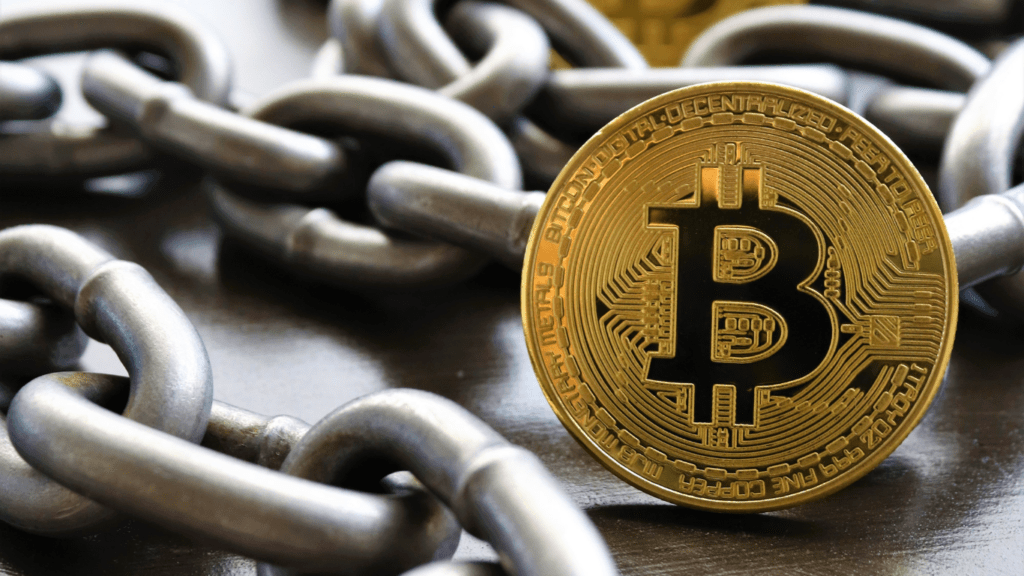What Is Decentralized Finance (DeFi)?
Decentralized Finance (DeFi) refers to a financial system built on blockchain technology, offering services without traditional intermediaries like banks. Utilizing cryptocurrencies and smart contracts, DeFi ensures transparency, security, and global accessibility. Smart contracts automate transactions based on predefined conditions, reducing human error and enhancing trust.
Core Components of DeFi
- Smart Contracts: Self-executing contracts with the terms directly written into code. They power DeFi applications by automating tasks.
- Decentralized Applications (dApps): Software applications that run on blockchain technology, providing various financial services like lending and borrowing.
- Stablecoins: Cryptocurrencies pegged to fiat currencies to reduce volatility, making them useful for everyday transactions.
- Decentralized Exchanges (DEXs): Platforms for peer-to-peer cryptocurrency trading without an intermediary.
Benefits of DeFi
- Accessibility: Anyone with internet access can use DeFi services, removing geographical and economic barriers.
- Transparency: Blockchain technology ensures all transactions are publicly recorded and verifiable.
- Security: Decentralization reduces the risk of single points of failure and hacking incidents.
- Control: Users retain control of their funds and data, mitigating the need for trust in third parties.
- Technical Complexity: Understanding and effectively using DeFi platforms can be challenging for newcomers.\
- Regulatory Uncertainty: DeFi operates in a regulatory gray area; future regulations may impact its development.
- Smart Contract Vulnerabilities: Bugs or exploits in smart contracts can lead to significant financial losses.
DeFi is transforming the financial landscape by providing an open, decentralized, and permissionless ecosystem. Understanding this dynamic sector is essential for anyone interested in the future of finance.
Key Components of DeFi
Decentralized Finance (DeFi) revolutionizes traditional finance using various innovative components. Here are key elements driving its transformative power.
Smart Contracts
Smart contracts are self-executing contracts where the terms of the agreement are directly written into code. These contracts automatically execute actions when predefined conditions are met. Ethereum, the most popular platform for smart contracts, has a robust ecosystem supporting them. For example, smart contracts enable lending platforms to interface directly between lenders and borrowers without intermediaries, ensuring transparency and security.
Decentralized Applications (dApps)
Decentralized applications (dApps) run on blockchain networks rather than centralized servers. dApps offer increased security and resilience due to their decentralized nature. Popular DeFi dApps include Uniswap, a decentralized exchange, and Compound, a lending platform. These applications facilitate financial services without relying on traditional financial institutions, making them accessible to anyone with an internet connection.
Token Standards
Token standards define how tokens operate within a blockchain ecosystem. Ethereum’s ERC-20 and ERC-721 are prominent token standards in DeFi. ERC-20 tokens are fungible, meaning each token is identical to another, and they are widely used for creating tokens that can be traded or used within dApps. ERC-721 tokens, on the other hand, are non-fungible, representing unique assets like digital art or collectibles, thus diversifying the DeFi landscape with varied use cases.
How Does DeFi Work?
DeFi leverages blockchain technology and peer-to-peer (P2P) transactions to create a decentralized financial ecosystem.
Blockchain Technology

Blockchain technology underpins DeFi by providing a secure, transparent ledger for recording transactions. Each block contains multiple transactions validated by network participants, known as nodes. This decentralized validation process ensures no single entity controls the ledger, fostering trust and security. Platforms like Ethereum facilitate smart contracts that execute transactions automatically when predefined conditions are met.
Peer-to-Peer Transactions
Peer-to-peer transactions in DeFi eliminate intermediaries, enabling direct interactions between users. These P2P transactions occur through decentralized applications (dApps) like Uniswap and Compound. Users can trade assets or lend and borrow funds directly. Smart contracts enforce the transaction terms, ensuring trustless operations. This approach reduces costs, increases transaction speed, and enhances financial inclusion.
Advantages of DeFi
Decentralized Finance, or DeFi, offers several benefits that reshape the financial landscape. By leveraging blockchain technology, DeFi introduces new ways to enhance transparency, accessibility, and cost efficiency.
Transparency
DeFi ensures transparency by utilizing blockchain technology. Every transaction gets recorded on a public ledger, making it easily verifiable. For example, Ethereum’s blockchain allows anyone to view transaction histories and smart contract codes. This openness reduces the need for third-party audits and increases trust among participants.
Accessibility
DeFi platforms are accessible to anyone with an internet connection, promoting financial inclusion. Traditional banking services often exclude individuals due to geographic, economic, or regulatory constraints. DeFi dApps like Uniswap and Compound enable users to access financial services without intermediaries, regardless of location. This ease of access empowers unbanked populations around the world.
Reduced Costs
DeFi minimizes costs by eliminating intermediaries in financial transactions. Traditional finance relies on banks and brokers, incurring fees for their services. In contrast, DeFi leverages smart contracts, automating transactions and reducing fees.
Examples include lower transaction costs on platforms like Uniswap and reduced borrowing rates on lending protocols like Aave. This cost efficiency benefits both users and service providers.
By focusing on transparency, accessibility, and reduced costs, DeFi redefines how financial services operate, making them more efficient and inclusive.
Risks and Challenges
Decentralized Finance (DeFi) presents some important risks and challenges. Understanding these risks is essential for anyone entering the DeFi space.
Security Concerns
Security is a major challenge in DeFi. Since DeFi platforms run on smart contracts and blockchain technology, any vulnerability in the code can be exploited. In 2020, hackers stole over $120 million from DeFi protocols, highlighting the need for robust security measures. Smart contract bugs and exploits can lead to massive financial losses if not addressed promptly. Code audits by reputable firms can help mitigate these risks, but they aren’t foolproof.
Additionally, users often manage their private keys, and losing these can result in irreversible loss of funds. Phishing attacks, where individuals are tricked into revealing their private keys, add another layer of vulnerability. Educating users about these threats and promoting safe practices is crucial.
Regulatory Issues
DeFi operates in a largely unregulated space, which poses regulatory challenges. Authorities worldwide struggle to keep pace with rapid technological advancements in the sector. This lack of regulation can lead to uncertain legal environments for DeFi users and developers.
Governments might impose strict regulations to control illicit activities like money laundering and fraud. For example, the Financial Action Task Force (FATF) has issued guidelines impacting DeFi activities. Compliance with these guidelines can be complex and costly, potentially stifling innovation.
Moreover, jurisdictional differences in regulatory frameworks create additional complications. A DeFi platform operating legally in one country might face legal challenges in another. Hence, navigating the global regulatory landscape remains a critical challenge for DeFi projects.
Popular DeFi Platforms and Projects
Several DeFi platforms are leading the way in revolutionizing finance. Each offers unique features and advantages.
Uniswap
Uniswap provides a decentralized exchange platform operating on Ethereum. Users trade cryptocurrencies directly from their wallets without intermediaries. Automated market makers optimize liquidity using smart contracts, ensuring efficient and secure transactions. Uniswap’s native token, UNI, incentivizes user participation and governance.
Aave
Aave specializes in decentralized lending and borrowing. Users deposit their assets into liquidity pools to earn interest or take out loans by providing collateral. Aave’s innovative “flash loans” allow instant borrowing without collateral, repaid within one transaction block. Its native token, AAVE, enhances protocol security and governance.
Compound
Compound facilitates decentralized money markets. Users supply assets to earn interest or collateralize loans. Interest rates dynamically adjust based on supply and demand through smart contracts. COMP, the native governance token, allows users to propose and vote on protocol upgrades, fostering community-driven development.
Getting Started with DeFi
Decentralized Finance (DeFi) offers exciting opportunities for managing and growing assets outside traditional financial systems. Getting started requires some essential steps.
Setting Up a Wallet
A crypto wallet is crucial for interacting with DeFi platforms. Non-custodial wallets give users complete control over their private keys and funds. Popular options include MetaMask, Trust Wallet, and Ledger.
- MetaMask: This browser extension and mobile app supports Ethereum and other blockchains. MetaMask integrates seamlessly with most dApps.
- Trust Wallet: This mobile wallet supports multiple blockchains and tokens, offering a user-friendly interface and built-in DApp browser.
- Ledger: A hardware wallet offering enhanced security by storing private keys offline. It’s ideal for users prioritizing asset protection.
Download the chosen wallet app, follow setup instructions, secure the seed phrase, and fund the wallet with cryptocurrency. For Ethereum-based DeFi, ETH is a common requirement.
Choosing the Right Platform
Selecting a platform depends on your financial goals. Consider popular platforms like Uniswap, Aave, and Compound.
- Uniswap: As a leading decentralized exchange, Uniswap allows users to swap tokens directly without intermediaries. Liquidity pools provide opportunities to earn fees.
- Aave: Specializing in decentralized lending and borrowing, Aave offers unique features like flash loans and allows earning interest on deposits.
- Compound: Facilitating decentralized money markets, Compound provides dynamic interest rates. Users supply and borrow assets, earning interest and COMP tokens.
Evaluate platform security, user reviews, and available tokens before committing. Understanding the specific benefits and risks of each platform ensures informed decisions in DeFi.



 Chief Technology Officer (CTO)
As Chief Technology Officer, Victor Kenneyell oversees the technical infrastructure and development strategies of the website. With a background in computer science and blockchain engineering, Victor ensures that the platform remains at the forefront of technological advancements in the crypto industry. His expertise in smart contracts, cybersecurity, and blockchain scalability solutions helps the website provide users with a secure and innovative experience.
Chief Technology Officer (CTO)
As Chief Technology Officer, Victor Kenneyell oversees the technical infrastructure and development strategies of the website. With a background in computer science and blockchain engineering, Victor ensures that the platform remains at the forefront of technological advancements in the crypto industry. His expertise in smart contracts, cybersecurity, and blockchain scalability solutions helps the website provide users with a secure and innovative experience.
